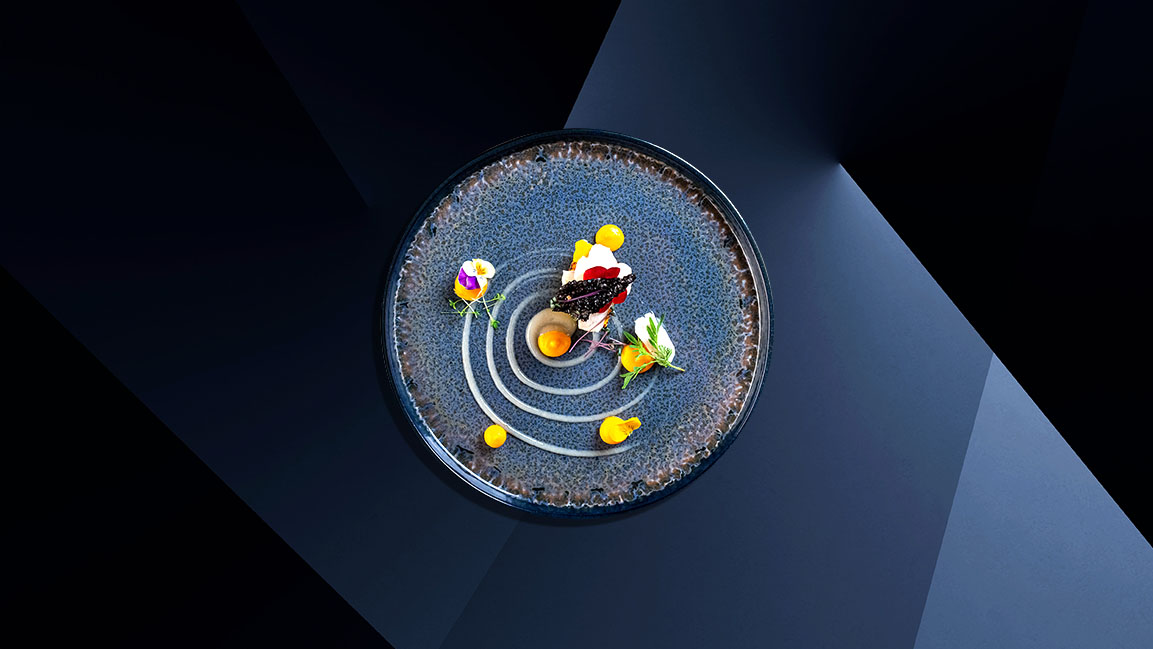- | 8:58 am
The GCC is becoming a top culinary tourism destination. So, what’s cooking?
Travelers, talented chefs, and restaurateurs from around the world are increasingly visiting the countries for its unique culinary offerings.

Travel is undergoing a unique metamorphosis. While luxury experiences and picturesque destinations remain alluring, a discerning new breed of traveler is emerging—the adventurous gourmand. This segment of travelers seeks captivating landscapes, cultural immersion, and a profound exploration of a destination’s culinary identity.
This burgeoning trend, aptly termed gastro-tourism, is finding plenty of unique experiences in the Gulf Cooperation Council (GCC) countries.
With a strategic blend of traditional cuisines and modern dining experiences, the GCC is attracting a growing number of food enthusiasts.
Culinary tourism stems from socio-economic factors. First, the region has witnessed a surge in residents with disposable income, fostering a burgeoning middle class with a growing appetite for novel experiences. Second, GCC governments have embarked on a concerted effort to diversify their economies, with tourism as a central pillar of this strategy.
At the Michelin Guide Awards for Dubai in July, Gwendal Poullennec, International Director of the Michelin Guides, said: “What a pleasure to witness the blossoming of Dubai as an international gastronomic destination, developing itself year after year. Its appeal isn’t just with international travelers or local gourmets; talented chefs and restaurateurs from around the world are now also attracted by its vibrant dining scene.”
CULTURAL RICHNESS MEETS INNOVATION
The hospitality sector within the GCC is aware of the culinary trend and adapting to it. Many hotel chain launches involve specific food and beverage (F&B) offerings. Partnerships with celebrity chefs and renowned restaurateurs are helping to create destination dining experiences.
Furthermore, the cultural richness of the GCC countries provides a unique selling point. Food is an integral part of Arabian hospitality, and visitors are often treated to immersive experiences, such as Bedouin-style dinners in the desert, traditional cooking classes, and visits to bustling local souks.
“One of the ways a hotel can create a compelling tourism experience is by working with a celebrity chef to launch a restaurant and grow their portfolio within a popular culinary destination,” says Heiko Roeder, Vice President of Food & Beverage at Atlantis, The Palm. “Dubai’s reputation as one of the greatest cultural melting pots makes it ideally suited for celebrity chef restaurants, and this is something that guests are looking for when they travel to the region.”
“Our affiliation with celebrity chefs began at the iconic Atlantis, The Palm, since its opening. The idea is that guests can dine and enjoy cuisine from Peru, Spain, the UK, and beyond without needing to leave the resort,” adds Roeder.
The GCC’s gastro-tourism appeal lies in blending tradition with modernity while welcoming industry-leading third-culture restaurants, supporting locally developed concepts, and attracting other international culinary talent. For example, the globally recognized Michelin Guide will soon launch in Doha, and there is a collection of food festivals and conferences across the region, including the annual Gulfood and the InFlavour Expo in Riyadh.
BEYOND THE PLATE
While dining at restaurants is one way to experience culinary tourism, curated food tours take guests on an immersive journey. These tours allow guests to taste the food and understand the cultural and historical context that shapes it.
“The Middle East is evolving, so you see more all-encompassing tours,” says Arva Ahmed, co-founder and CEO of Frying Pan Adventures. “Travelers are now actively seeking food tours. The market is growing, driven by word of mouth, food shows, and YouTube. People want to eat like locals and avoid the same old, same old.”
“The corporate market for food tours is also expanding. HR teams and senior leaders seem to opt for a more culturally immersive experience around a city rather than the stock hotel buffet,” adds Ahmed.
STRATEGIC INVESTMENTS AND PARTNERSHIPS
The governments and private sectors are investing significantly in gastro-tourism. For example, Saudi Arabia’s Vision 2030 plan includes substantial allocations for tourism infrastructure, focusing on cultural and culinary tourism. The UAE continues to bolster its reputation as a global food hub through events like the Dubai Food Festival and Abu Dhabi Culinary Season, which attract world-renowned chefs and food connoisseurs.
Strategic partnerships are also pivotal. Collaborations with international culinary schools like Ecole Ducasse in Abu Dhabi, celebrity chef collaborations, and global food brands are helping to elevate the region’s gastronomic profile.
CHALLENGES AND OPPORTUNITIES
Despite its burgeoning growth, the gastro-tourism market faces challenges. In addition to competition in other, more well-developed, or recognized culinary destinations, the region’s extreme climate can be a deterrent, particularly during summer. Additionally, the high cost of dining in some of the more upscale venues might limit accessibility for a broader range of tourists.
However, various initiatives are addressing these challenges. The introduction of air-conditioned food markets and the development of more affordable yet high-quality dining options make the region’s culinary experiences more accessible. Restaurant weeks and food festivals offer chances for guests and locals to sample signature dishes without committing to a full meal.
“Culinary tourism plays a significant role in enhancing guest experiences and promoting cultural heritage. Our approach to developing partnerships with chefs, restaurants, and food producers is integral to creating memorable culinary experiences for our guests,” says Yasser Younis, Director of F&B at Fairmont Hotel Riyadh.
Its most notable initiatives include collaborating with Michelin-experienced Chef Nicolas Isnard, who brought the House of Grill project to life, and Afternoon Tea collaboration with Jo Malone London, which blends the sensory elements of taste and scent.
“Working with renowned chefs and luxury brands, we tap into a wealth of expertise and creativity, ensuring our menus remain dynamic. This approach attracts culinary tourists and enhances Riyadh’s reputation as a vibrant culinary hub,” adds Younis.
The future of gastro-tourism in the GCC looks promising. As the region continues to invest in its culinary infrastructure and develop innovative experiences, Michelin-starred restaurants have already been drawn to its unique culinary landscape, establishing unique outposts, some for the first time outside of a home country.
By capitalizing on its rich culinary traditions, strategic investments, and global partnerships, the GCC is becoming a leading destination for the discerning gourmand.







































